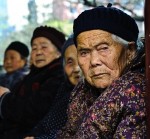-
Advocacy Theme
-
Tags
- Abortion
- Adoption
- Caregiving
- CEDAW
- Disability
- Domestic Violence
- Domestic Workers
- Harassment
- Healthcare
- Housing
- International/Regional Work
- Maintenance
- Media
- Migrant Spouses
- Migrant Workers
- Muslim Law
- National budget
- Parental Leave
- Parenthood
- Polygamy
- Population
- Race and religion
- Sexual Violence
- Sexuality Education
- Single Parents
- Social Support
- Sterilisation
- Women's Charter
Address the needs of all in caregiving
January 30th, 2015 | Family and Divorce, Letters and op-eds, News, Older People and Caregiving, Poverty and Inequality, Views
By Goh Li Sian, Research and Advocacy Coordinator, AWARE
 As Singapore’s population ages, more carers will be required to fulfil eldercare needs.
As Singapore’s population ages, more carers will be required to fulfil eldercare needs.
While volunteers have a role and their efforts are welcome, we would caution against relying on volunteering as a primary source of eldercare. (“More work needed to get more volunteers to help seniors”; Jan 16)
Such an approach would be neither sustainable nor fair. Caregiving is work, requiring physical and mental effort; it is often demanding in terms of skill, resourcefulness and resilience. Carers work long hours, potentially around the clock.
Society must recognise that eldercare has real economic value. Nearly everyone is connected to or responsible for dependent family members in some way. Without the labour provided by carers, no other economic activity is possible. Traditionally, this value has been overlooked because of the perception that domestic labour is exclusively women’s work and should be performed by female family members without compensation, which has repercussions for women’s economic security.
The Manpower Ministry report Labour Force In Singapore 2013 stated that 45 per cent of economically inactive women had dropped out of the formal workforce because of family responsibilities, such as housework and caregiving.
Leaving paid employment has an impact on carers’ retirement adequacy: They cannot accumulate enough in their Central Provident Fund to sustain themselves and finance their healthcare needs.
This may lead to greater strains on the eldercare system, when today’s uncompensated carers are tomorrow’s financially inadequate elderly.
In last year’s public consultations for the Budget, the Association of Women for Action and Research recommended that policies shift towards the provision of caregiving services as a public good, just as other public goods are made available to all.
Significant investments should be made for the care of children, the elderly and people with disabilities. The inclusive society we want must provide adequate care for all.
Caregiving is too important to leave to private market mechanisms that cater for those who can afford it, while those who cannot are relegated to volunteers on an ad hoc basis.
This letter was first published in TODAY on 23 January 2015.



